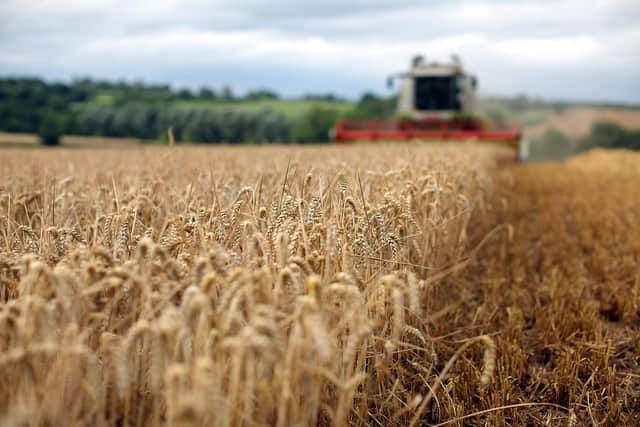COP28 climate change summit saw landmark declaration that should dramatically affect what we eat – Philip Lymbery
I remember it like yesterday. Thirty years ago, and my first trek up the Cairngorms. My best pal and I were keen to get our first glimpse of some of Scotland’s finest mountain wildlife.
Not long before, my friend had spent six months in bed with a back injury. Our plan was to take the ski lift, but the weather put paid to that. We were torn. We really wanted to go, but would he make it? Fired up, we made the yomp. Our reward was stunning views of one of the UK’s rarest breeding birds: delicate finch-like snow buntings that look like snowflakes when they flutter.
Advertisement
Hide AdAdvertisement
Hide AdScroll forward 30 years and my pal still has back problems and snow buntings are in trouble from climate change. You see, they are birds of the cool uplands. Just as warming melts those iconic snow-covered mountain tops, so it pushes the buntings further up the slope in search of suitable breeding habitat. Chances are they’ll run out of mountain and be gone.
Thirty years ago, climate chaos was an emerging theme. The first United Nations climate change “Conference of the Parties” (COP) was still a couple of years away. Now we’re starting to see how climate change affects not only snow caps and pretty mountain birds but us all. The world is waking up.
This year, hopes of averting planetary crisis converged on Dubai and the 28th gathering of climate policymakers, the biggest COP ever with nearly 100,000 delegates. It’s been a paradox of a meeting. Fossil fuels contribute over 75 per cent of global emissions, yet this one was hosted by the UAE, a major oil-producing nation.
In what will be seen as a mixed bag of a conference, one long-ignored stumbling block to success has been brought out of the shadows: food. Globally, it is responsible for a third of greenhouse gas emissions. At 27 previous COPs, doing something about it has been the elephant in the room.
Encouraging then, that COP28 opened with a presidency declaration on food systems, farming, and climate. Described as a “landmark” statement of intent, at least 158 countries have signed on, including the UK, EU, and USA. It affirms that tackling climate change means that food consumption and production “must urgently adapt and transform”. It forms a commitment to integrate food and farming into future climate negotiations.


COP28’s food declaration is a welcome development, and one that has been nearly 30 years in the making. It was heralded by more than 650 food-related events held over 12 days. Much noise and expectation have been created. Success will be defined by the level of ambition that now transpires.
I’ve always believed that the first step to big change is recognition of the problem. Now, after decades of absence, food systems’ role as a key driver of climate change has officially been recognised. For snow buntings, snow-covered mountains, and generations of people, getting the world off fossil fuel-addicted industrial agriculture, with its fertilisers, cages, and live animal transport, is a must-do for a climate-friendly world.
Philip Lymbery is chief executive of Compassion in World Farming, a former UN food systems champion and an award-winning author. His latest book is Sixty Harvests Left: How to Reach a Nature-Friendly Future. Philip is on Twitter @philip_ciwf
Comments
Want to join the conversation? Please or to comment on this article.
